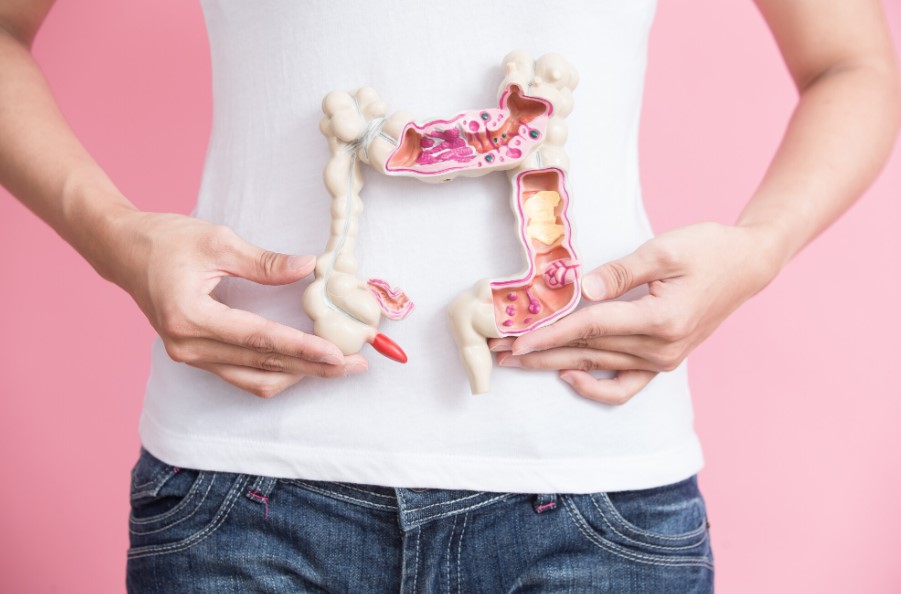Are you tired of feeling bloated and uncomfortable after every meal? Do you suffer from frequent indigestion or heartburn?
The good news is that certain foods can improve your digestion and help alleviate these symptoms. From fiber-rich fruits to probiotic-packed yogurt, we’ve rounded up the best foods to improve digestion and for a happy gut.
So grab a fork and let’s dig in!
Yogurt
Yogurt is a fermented food that contains live and active cultures. These cultures can help to improve digestion by breaking down lactose and other difficult-to-digest components in food. Yogurt is also a good source of probiotics, which are beneficial bacteria that help to maintain healthy gut flora.
Kefir
Kefir is a fermented milk drink that originated in the Caucasus Mountains. It is made by adding kefir grains to milk and allowing the mixture to ferment.
Kefir contains beneficial bacteria that can help improve digestion. Studies have shown that kefir can help reduce symptoms of irritable bowel syndrome and other digestive disorders.
Ginger
Ginger is a well-known digestive aid that can be consumed in many forms, including fresh, powder, oil, and tea. It has been used for centuries to relieve indigestion, nausea, and vomiting.
Ginger is thought to work by stimulating the digestive tract and increasing the production of digestive juices. It also helps to relax the smooth muscles of the GI tract, which can improve overall digestion.
Whole Grains
There are a lot of promoting whole grains these days as a way to improve overall health, but digestive health in particular. This is because whole grains are packed with fiber, which is essential for keeping the digestive tract moving properly. Fiber also helps to bulk up stool, making it easier to pass and helping to prevent constipation.
If you’re new to eating whole grains, start slowly and increase your intake gradually. Some people may experience gas or bloating when they first start consuming more fiber, but this usually goes away as your body adjusts. Whole grains include any grain that has all three parts intact:
- bran
- germ
- endosperm
This includes:
- wheat
- rye
- oats
- barley
- quinoa
- brown rice
These foods are typically higher in fiber than their refined counterparts (think white bread or white rice), so they can be a helpful addition to your diet if you’re looking to improve your digestion.
And be sure to drink plenty of water throughout the day to keep things moving along smoothly.
Bananas
Bananas are a great food to eat for better digestion. They are high in fiber, which helps to keep things moving along in your digestive system.
They also contain potassium, which helps to regulate electrolyte levels and maintain proper muscle function in the gut. Additionally, bananas are a good source of prebiotic nutrients that help to feed the beneficial bacteria in your gut.
Leafy Greens
Leafy greens are a great source of fiber and other nutrients that are essential for good digestion. Fiber helps to keep things moving through the digestive system and can help to prevent constipation.
Leafy greens are also a good source of water, which is important for keeping the digestive system hydrated. Other nutrients in leafy greens that are good for digestion include vitamin C, folic acid, and potassium.
Fermented Foods
Fermented foods are an important part of any diet, but they are especially beneficial for those who suffer from digestive issues. Fermented foods are rich in probiotics, which are live bacteria that help to keep the gut healthy. Probiotics are essential for good digestion, as they help to break down food and absorb nutrients.
There are many different fermented foods available, such as yogurt, kefir, sauerkraut, kimchi, and miso. Each of these foods contains different strains of probiotics, so it is important to eat a variety of them to get the most benefit. Probiotic supplements can also be helpful for people with digestive issues.
Fruits and Vegetables
Fruits and vegetables are an important part of a healthy diet and can help improve digestion. Fiber, which is found in fruits and vegetables, helps to add bulk to the stool and keeps the digestive system regular.
Water-soluble fiber, found in citrus fruits, apples, bananas, and potatoes, can help to soften the stool and make it easier to pass. Insoluble fiber, found in dark leafy greens, carrots, celery, and cucumbers, helps to add bulk to the stool and prevents constipation.
including both soluble and insoluble fibers is important for proper digestion. Fruits and vegetables also contain other nutrients that are essential for good health, such as vitamins, minerals, antioxidants, and phytochemicals.
Food Supplements
There are a few food supplements like gutpro that can improve digestion. These supplements help to add bulk to the stool and keep things moving through the digestive system. It can also help to reduce constipation and diarrhea.
Another supplement that can improve digestion is probiotics. Probiotics are live bacteria that help to keep the gut healthy. They can help to reduce bloating, gas, and other digestive problems.
Stick to Healthy Foods to Improve Digestion
Eating a variety of healthy foods benefits digestion and encourages overall good health. The connection between food choices and good digestion is highly evident. Choose to include more fruits, vegetables, and whole grains in your diet.
In addition, eat foods that are low in fat and high in fiber. Start making healthy choices of foods to improve digestion today for long-term advantages in digestion.
Should you wish to read more articles aside from healthy eating choices, feel free to visit our blog.










